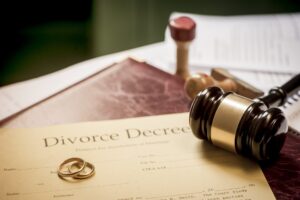The Pennsylvania Legislature amended the state’s liquor code in 1965 to include the following provision within the Dram Shop Act:
No Licensee shall be liable to third persons on account of damages inflicted on themoff of the licensed premises by customers of the licensee unless the customer who inflicts
the damages was sold, furnished or given liquor or malt or brewed beverages by the said
licensee or his agent, servant or employee when the said customer was visibly intoxicated.
47 P.S. §4-497
Despite this definitive language, Pennsylvania courts are still wrestling with the exclusivity of the Dram Shop Act. As a result, we continue to see inconsistent rulings from the bench.
A recent Allegheny County case, having no precedential value anywhere else in the Commonwealth, exemplifies the problem. In Sims v. Fuhrer, 2012 Pa. D&C, LEXIS 309, Judge Wettick appeared to be agreeing with the defense argument that the Dram Shop Act is exclusive and even sustained the defendant’s preliminary objection seeking to dismiss all other allegations of negligence against the defendant tavern. However he then concluded, following the ruling in Rivero v. Timblin, 12 Pa. D&C 5th 233 (Lancaster Co.P. 2010), that common law theories of negligence can be asserted once the plaintiff has established that there was service to a visibly intoxicated patron, thus opening the door to the introduction of negligence based evidence such as policies, procedures, training, hiring practices, etc. Defense counsel have argued, both successfully and unsuccessfully, that the decision and reasoning of Judge Ashworth in Rivero is flawed in that once the jury decides that there was service to a visibly intoxicated patron a violation of the statute is established and therefore there is no need for them to make any further determination of negligence based upon common law theories.
In Liberty Mutual Fire Ins. Co. a/s/o Pamela S. Wolfe v. Dane S. Tilden, et al., Ct of Common Pleas of Cumberland County, Civil Action No. 112140, the Honorable Kevin A. Hess wrote “Our Superior Court has noted that, since the 1951 enactment of our modern Liquor Code, containing Section 4-493(1), and the 1965 enactment of Section 4-497, both sections have been used to “impose (or limit) civil liability on [liquor] licensees.”. Citing Hiles v. Brandywine Club, 441 Pa.Super. 462, 467, 662 A.2d 16, 18 (1995). Citing Peluso v. Walter, 334 Pa.Super. 609, 483 A.2d 905 (1984), Judge Hess further noted that in order to sustain an action against a tavern owner, a plaintiff must demonstrate that the owner served liquor to a customer when he was visibly intoxicated pursuant to Section 4-497 of the Liquor Code. Indeed, Judge Hess states that “The text chosen by the legislature in drafting Section 4-497 is clear in both its limiting of the method of recovery for third parties (i.e. third parties are to use Section 4-497 as the only cognizable basis for a claim against a licensee), as well as the limiting of the liability that could otherwise be imposed (i.e. a licensee shall not be liable to a third party, unless the customer was visibly intoxicated when served.).” Citing Detwiler v. Brumbaugh, 441 Pa.Super. 110, 114, 656 A.2d 944, 946 (1995), he then says that the statute “… is not a gateway to any and all variety of negligence, but instead ‘Section 4-497 is clearly a limiting provision designed to specifically shield licensees from liability to third parties except in those instances where the person served was visibly intoxicated.'”
The Honorable Alan J. Tereshko in the Philadelphia County Court of Common Pleas issued an Order in 2012 granting a defendant bar’s Preliminary Objections in the case of Buskirk v. Linda K. Woodward, Inc., et al., noting that:
The limiting nature of the statute was made clear in Detwiler v. Brumbaugh, 441 Pa.Super. 110;
656 A.2d 944 (1995). “Section 4-497 is clearly a limiting provision designed to specifically shield
licensees from liability to third parties except in those instances where the patron served was
visibly intoxicated.”
See also Druffner v. O’Neill, 211 US Dist. LEXIS 31146 (E.D. Pa. March 24, 2011) for favorable treatment of this issue by the Honorable Ronald L. Buckwalter in federal court.
Unfortunately, this issue will continue to be decided on a county by county, case by case basis until it is either addressed on appeal by the Superior Court or Supreme Court, or until the legislature amends the Dram Shop Act to specifically state that it is the exclusive remedy for claims against licensed alcoholic beverage servers.
Read more about Sims vs. Fuhrer
Read more about Rivero et al vs. Timblin et al
Read more about Liberty Mutual vs Tilden and Noel





